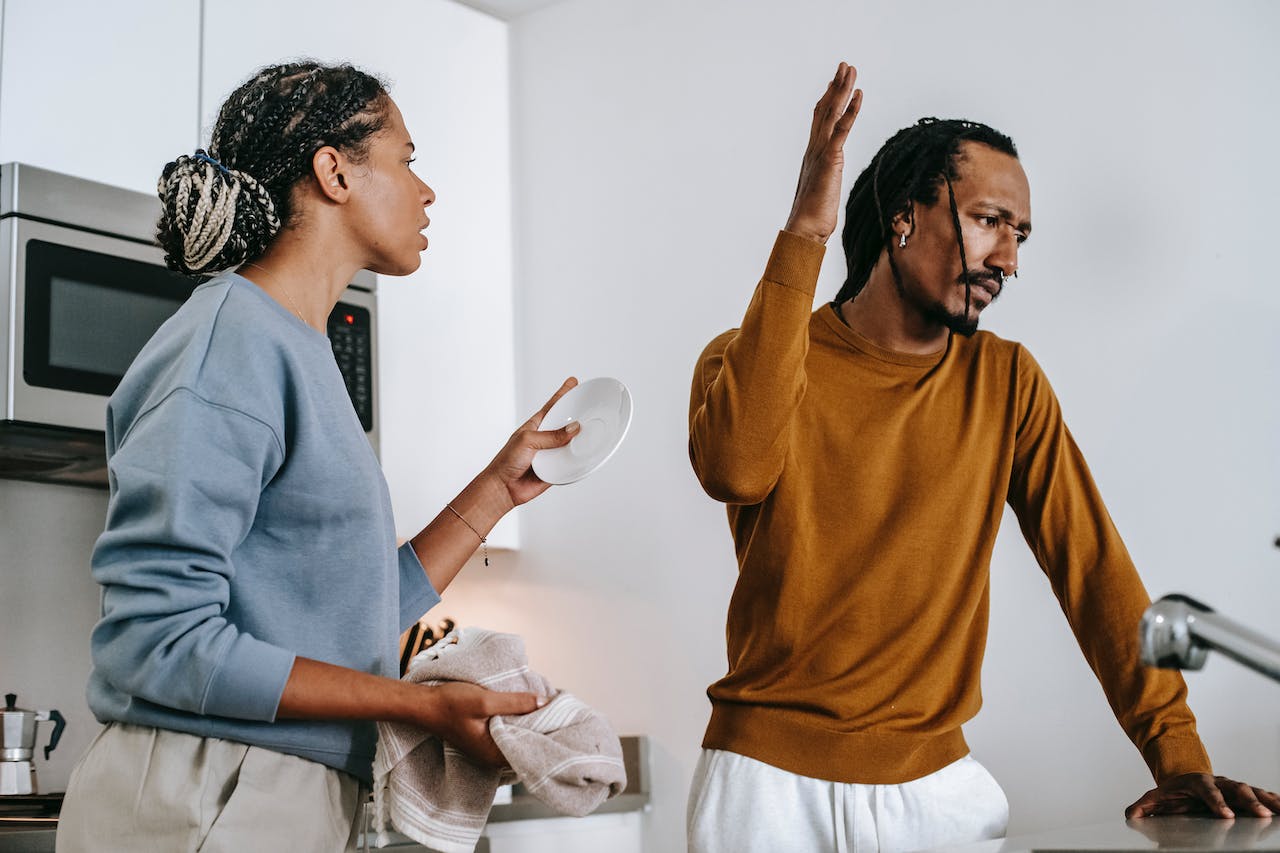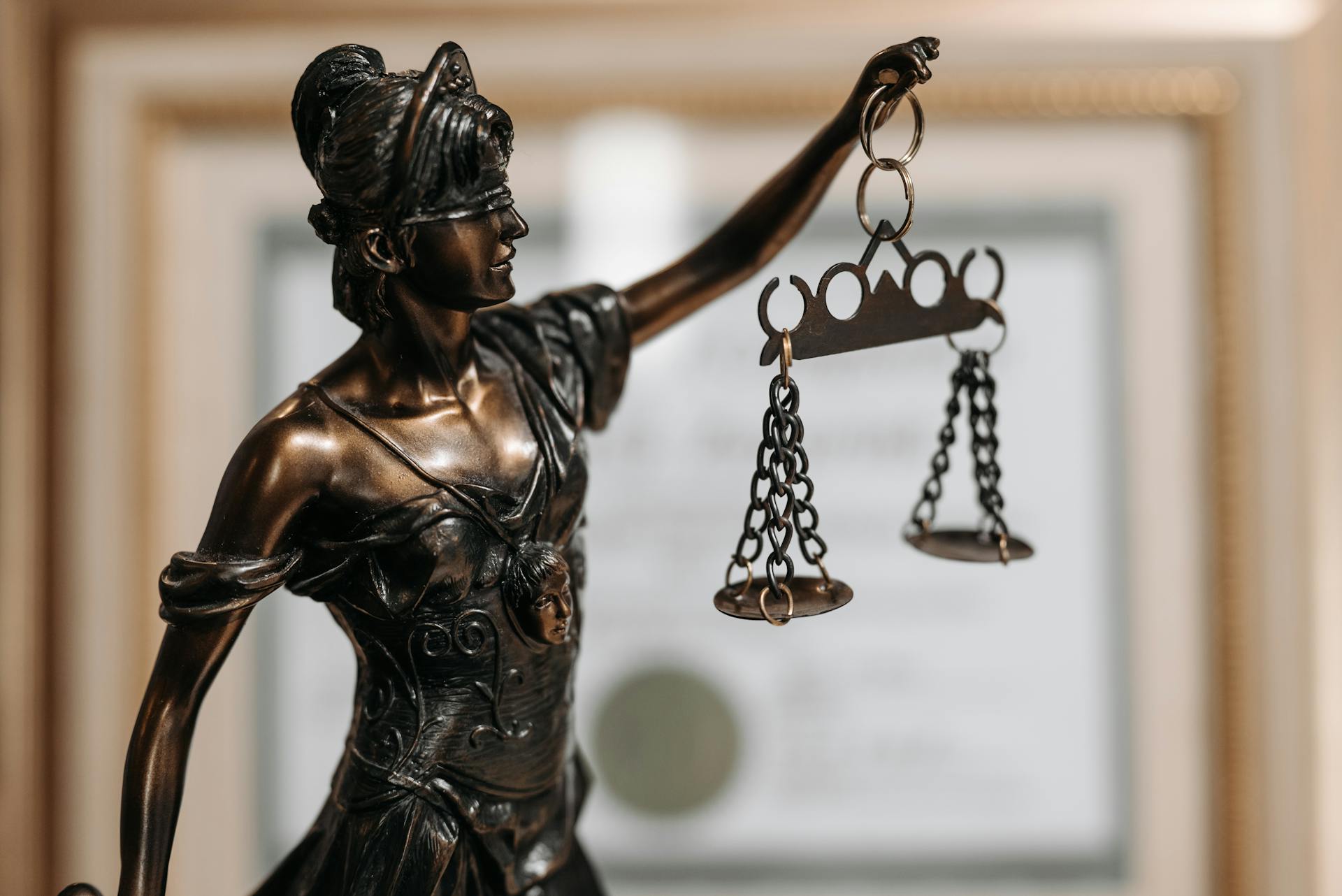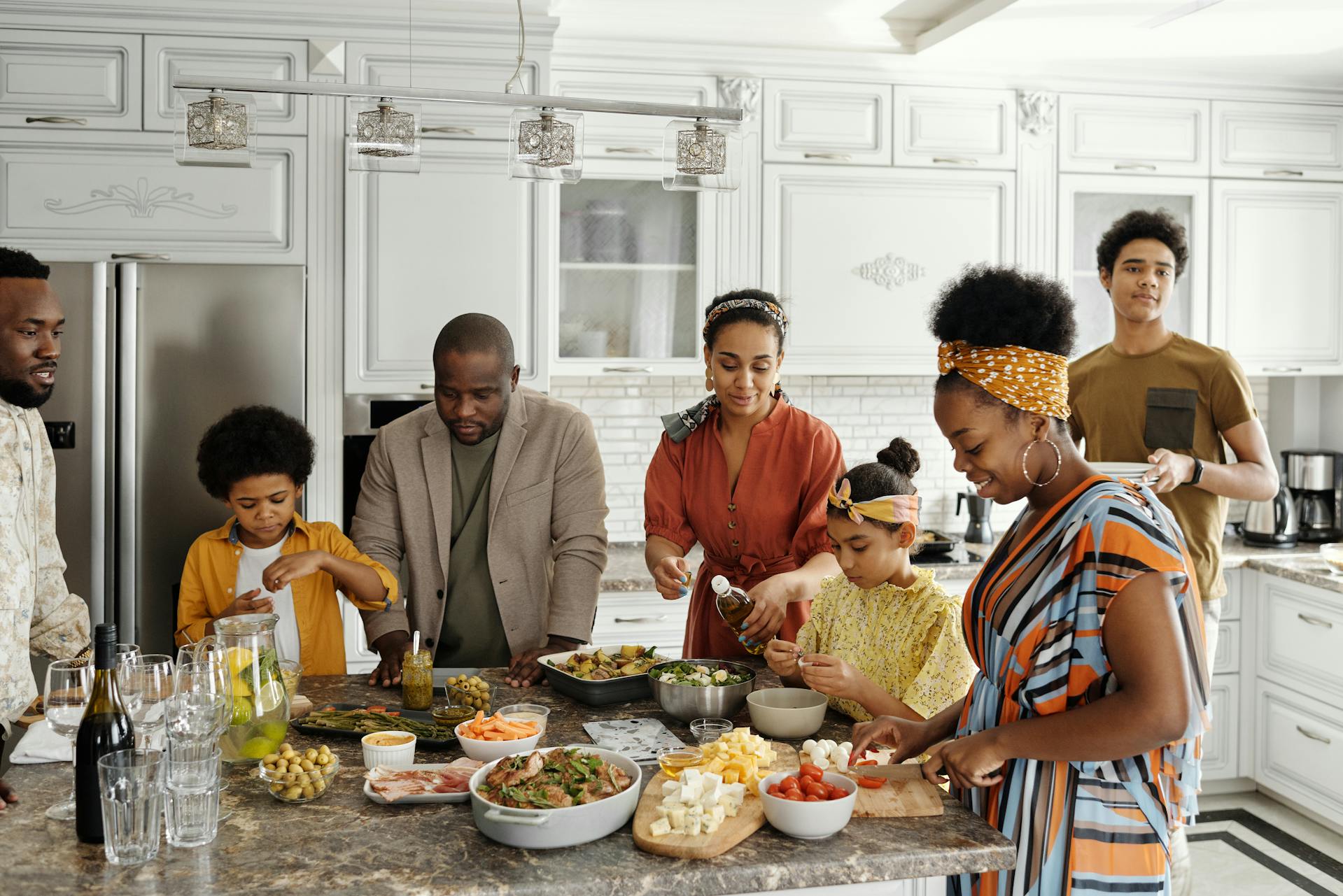Navigating toxic relationships can be like finding your way through a puzzling and disorienting maze, and I've certainly been on that tumultuous journey. In my previous article, I opened up about the discovery of my ex-husband's narcissistic tendencies and how they transformed our relationship into a toxic quagmire. I compounded the problem by bottling up my anger, which led to some rather irrational outbursts. A toxic cycle was formed and it continued throughout our six-year relationship, with fleeting moments of happiness that could never truly overshadow the underlying problems.

However, following some soul-searching and candid heart-to-heart conversations with those who have traversed similar turbulent waters, I grasped a more intricate truth: it takes two to tango in a toxic relationship. I had to acknowledge the role I played in my relationship. These relationships mirror a complex interplay of emotions, actions and choices involving both partners. Even if one person's behaviour initially sparks toxicity, your response, whether it's compliance or battling negativity with negativity, can either defuse the situation or stoke the flames. Recognising this shared responsibility is a pivotal step toward breaking free from the toxic cycle and nurturing healthier, more fulfilling relationships.
The spectrum of toxicity in relationships
According to Love is Respect, an online platform linked to the National Domestic Violence Hotline, offering 24/7 support for young individuals facing relationship concerns, all kinds of relationships, be it with partners, family or friends, exist on a spectrum. This spectrum covers healthy, unhealthy and downright abusive relationships, with varying levels of toxicity. It's important to figure out where your relationship falls on this spectrum because it can help you understand what's going on and what you should do.
Healthy relationships: Healthy relationships are the ones that tick all the right boxes. They're built on respect, trust, good communication and support. In these, toxicity is usually quite low or even non-existent. But let's be real, no relationship is perfect. Even in the best ones, you might have the occasional arguments or disagreements, but it does not mean the whole relationship is toxic.
Unhealthy and abusive relationships: Here's where it gets interesting. Unhealthy and abusive relationships come with different levels of toxicity.
- Milder toxic relationships: These are the ones where you might have odd disagreements, emotional mind games or problems with setting boundaries. In many cases, these issues can be resolved through open communication, setting boundaries or getting some professional guidance.
- Severely destructive toxic relationships: Then there are the really tough ones. These can involve ongoing abuse, which could be physical or emotional. In these cases, your safety is at risk, and you need to act quickly. That might involve reaching out to the police, talking to therapists or relying on support networks.
To understand where your relationship falls on the toxicity spectrum, you need to keep an eye out for certain signs:
- Patterns of behaviour: Look for recurring patterns in your relationship. Is there a lot of disrespect, manipulation or abuse happening repeatedly? The more it occurs, the further along the toxicity scale your relationship may be.
- Effect on well-being: Pay attention to how the relationship affects your mental and emotional well-being. If it leaves you feeling constantly anxious, down or unsafe, it's leaning towards the severe end of the toxicity spectrum.
- Physical and emotional abuse: If you're facing physical abuse or constant emotional abuse, such as continuous belittling, gaslighting or isolation, it's a strong indicator that your relationship is closer to the severe end of the toxicity spectrum.
- Trouble setting boundaries: In milder toxic relationships, you might have issues with setting boundaries, leading to conflicts and emotional manipulation. If these problems persist and cause you significant emotional distress, it's a sign that your relationship is leaning towards the more severe side.
- Feedback from friends and family: Listen to what your trusted friends and family have to say about the relationship. They can provide an external perspective on its nature and severity.
- Safety concerns: If you ever feel physically threatened or genuinely fear for your safety, it's a critical sign that your relationship is moving towards the severe end of the spectrum.
- Misalignment of the relationship with who you are: Take some time for introspection. Assess how the relationship aligns with your values, goals and personal well-being. Your own feelings and intuition can be powerful indicators of where the relationship stands on the spectrum.
Remember that the spectrum is not set in stone. Relationships can shift along it over time. If you are uncertain about where your relationship falls or if it is causing you distress, seeking professional guidance or support from friends and family can provide valuable insights and help you make informed decisions about how to proceed. Your well-being should always be a top priority.
Red flags that show you that you are in a relationship with a toxic person
Spotting early signs that you are in a relationship with a toxic person is critical. Look out for these common red flags.
- Isolation: Your partner insists that you avoid your friends and social gatherings.
- Double standards: They expect you to follow rules that they themselves do not follow.
- Control: Your partner dominates your decisions and actions.
- Gaslighting: They manipulate you into doubting your own judgement and reality.
- Continuous disrespect: You frequently encounter disrespectful behaviour, which can erode your self-esteem.
- Emotional manipulation: You find yourself caught in a cycle of guilt and fear.
- Physical or emotional abuse: No form of abuse, whether physical or emotional, should ever be tolerated. Emotional abuse involves actions that harm emotional well-being. In my case, it included dismissing my concerns about cheating and making me feel guilty for raising the issue, creating feelings of isolation and self-doubt.
Recognising these early warning signs empowers you to break free from a toxic relationship early enough and prioritise your own well-being.
How we contribute to toxicity
I can't claim my entire relationship was toxic. Toxicity isn't something we sign up for intentionally. We fall in love, have dreams, and somewhere along the line, one or both of us introduces toxicity. Initially, we ignore the warning signs, hoping for change or fearing the loss of the relationship. These signs play with our emotions, influenced by unrealistic ideals of a perfect relationship. Denial traps us, whether it's the fear of losing the connection or the misguided hope for change.
Reflecting on it, I recognise my role in fostering a toxic environment in my marriage. I gave my husband a reason to witness my less-than-ideal reactions rather than a more composed response, articulating my feelings calmly and leaving early. In the previous article, I stressed the importance of staying true to your values. Regrettably, I didn't follow that advice then. I failed to identify my non-negotiables and compromised on them. And in that, I made an already toxic situation worse. Trying to hide a part of yourself in a relationship contributes to toxicity, even if your partner started as the one causing issues.
Another way that we contribute to toxicity is by persisting in a situation we know, deep down, is far from right. Personally, I often felt like the helpless victim, genuinely believing I was doing everything in my power to salvage our marriage while he shouldered the entire blame for its collapse. I repeatedly told myself that no marriage is without its flaws, and so I stayed. For six years. As an African woman, having grown up in a traditional African setup, sticking to my values was challenging.
In the African setup, there is often a tendency to downplay a man's infidelity, and even though I was aware of this, breaking free from this mindset proved challenging. Society tells you these are minor issues, and you should focus on the "important" roles of being an excellent African woman – raising kids and maintaining the facade of a happy marriage. Being solid and true to yourself may sound easy when hearing it from others, but breaking free from what we were taught is tough. Still, it is crucial. Otherwise, we'll keep complaining about toxic relationships without acknowledging our part in making them unhealthy and this might be repeated in our future relationships.
The effects of toxic relationships
Toxic relationships take a toll on you. It's essential to reflect on the lasting impact they can have on your life and the lives of those closest to you. Here are some of the effects:
- Effects on your mental health
A toxic relationship can leave your confidence and self-worth in tatters. It feels as if your mind, thoughts and emotions have been through a war zone. It's not uncommon to grapple with depression and overwhelming mental exhaustion after leaving a toxic relationship. At this point, it's crucial to talk to someone or connect with a support group of individuals who've weathered similar experiences.
- Effects on your view of the world
Your perspective on the world often undergoes a significant shift after a toxic relationship. In the aftermath, you might see the world through a lens of anxiety, expecting everyone to behave like your toxic partner. It's as if nothing can bring you happiness, and self-doubt creeps in, making you feel like you can't do anything right. You might even start disliking things you once enjoyed.
The most effective way to reverse this is by accumulating evidence that the world is, indeed, a good and safe place. Recognise that you're no longer ensnared in a toxic environment, engage in activities with people who share your values, or spend more time with friends and family. With time, you'll gradually regain a more positive outlook.
- Effects on your future relationships
Starting a new relationship may not be something you're ready for immediately. You might find yourself scrutinising and assessing possible life partners with intense caution, and trusting can become incredibly challenging. It's easier to build walls and keep people at a distance. It's tough to fight that instinct, but it's worth working on it. This period of being single can be an opportunity to rediscover yourself. Rebuilding your confidence and your ability to trust will equip you with the tools needed to love again and form new, healthy relationships.
In my personal journey, there was a period when I felt more self-assured, had greater self-esteem, and was more open to trusting others. However, the impact of a toxic relationship considerably shifted this landscape. Now, contemplating the prospect of initiating a new relationship feels like a formidable challenge, mainly due to the trust issues that have taken root. This turbulent period also took a toll on my health, manifesting as persistent ulcers and anxiety. Despite the challenges though, I find solace in the fact that I've gained self-awareness and have embarked on a journey towards healing and recovery.
Breaking the cycle of toxicity
- Acknowledging mutual responsibility in toxic relationships
In toxic relationships, it is crucial to grasp that both individuals share responsibility. Commencing the journey to break free from this cycle starts with self-awareness and recognising the need to change established patterns.
- Avoiding the pitfalls of retaliation
Retaliation often serves as a common response to abuse, but it can exacerbate conflicts and lead to self-destructive behaviours. A healthier alternative involves promoting open communication and seeking professional support to tackle these challenges.
- Indulging in effective communication
Open and empathetic communication plays a fundamental role in breaking away from the toxicity cycle. Seeking guidance and support from professionals can be beneficial for both individuals and the relationship as a whole.
- Dealing with unrealistic expectations and promises
Hoping to change our partners or expecting them to change for us frequently ends in disappointment. Unreciprocated efforts and unmet expectations can leave us disheartened.
- Highlighting upfront honesty
Honesty and transparency from the very beginning are essential. It's crucial to align values and goals early to avoid unnecessary heartache. Equally important is refraining from making promises of change. A recent insight from TD Jakes on YouTube resonates with this, stating, "We often have unspoken expectations of people, and disappointment arises when those expectations are never communicated. You brought me into a role I never had the script for." This perspective holds a great deal of truth.
- Navigating societal pressures
Societal expectations and cultural influences can wield significant influence over relationships. Overcoming the myth of the 'perfect relationship' and successfully navigating these external pressures are essential for personal and relationship growth.
- Seeking professional support
Recognising the necessity for change and seeking professional assistance and support represent the first steps towards liberating oneself from the cycle of toxic relationships. While it's undoubtedly a challenging journey, it ultimately paves the way for personal growth and the development of healthier connections in the future.
Wrapping up
While acknowledging my status as a victim, I also recognise my responsibility for not taking action earlier to prevent things from turning out the way they did in my marriage. In my view, toxic relationships are a joint creation, born of the actions and reactions of both individuals involved. Through introspection and the wisdom gained from past experiences, we gain the tools to make more enlightened choices in our future connections.
Prioritising self-care, fostering self-awareness and seeking partners whose values align with our own lay the foundation for healthier, more harmonious relationships. The key to a fulfilling partnership lies not in attempting to change someone but in finding someone whose values and goals align with ours from the onset. Emerging from the shadows of toxic relationships equips us with invaluable insights and resilience, empowering us to make wiser choices and forge stronger and better connections in the future.





